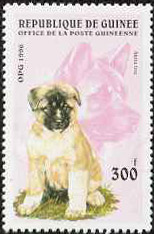
A New Owner's Guide to Pomeranians
Pomeranians are spitz dogs, with all that this implies - for example, they are very vocal, and often pushy. People who can get past their horrible yap (preferably those who are slightly deaf and have thick walls) can find these dogs very endearing companions, plucky and affectionate without being clingy, and they have lots of character. They are excellent watchdogs, and no self-respecting burglar wants a Pomeranian commenting on his activities.
Poms can also be trained to be quieter, for example, 'Good Dog' will usually reassure them that you have heard what they are trying to tell you so urgently, and they don't need to repeat it. Bark control should be taught from when they are pups, to have the best effect. Like all dogs, they benefit from regular walks, and are much quieter after a walk, when they tend to sleep. It's untrained, underexercised, bored little Poms which are the worst yappers. They do need training, and training them is much the same as training any spitz dog, it needs patience, but at least a Pom is unlikely to pull you over on walks or beat up the neighbourhood dogs - though they are bold, and will tend to voice their displeasure at dogs that offend them. They like attention, which helps with training them.
Poms are very cute when they are little pups, so they often get away with murder. It's well worth teaching them the basics, especially bite inhibition, however, because they can be strong willed, and it makes them much more enjoyable to live with when they are adults. Obedience training gives you more control over their barking. You can praise them for giving them a warning bark, then call them to you, for example, if they have good recall.
Well-trained Poms are good companions for older children, though the breed is a little small for younger children, who may see them as fluffy, animated teddy bears. Pomeranians can be nervous if cornered by small children trying to lift them up, and even the best behaved Pom could be tempted to snap. They are, however, very good companions for older people who want a challenging dog with intelligence and a strong character, that won't pull them over.
They are much quieter if they have human company in the day, so are especially suited to retired people with experience of dogs. They enjoy walks, and can even be good agility dogs, but Poms are adaptable, and can learn to retrieve and play other games in the garden, so can have active lives even if they don't go on long walks. They also enjoy indoor games, such as 'hunt the titbit'. Generally, Pomeranians get on well with other dogs, though they need socialization with smaller breed pups, and need to get to know dogs of different sizes in a controlled environment such as a training class.
Poms need regular grooming to look their best, though not as much as you might think for a long-haired breed. They can shed a fair bit, though not as much hair accumulates as with a larger breed.
Common health problems include knee trouble (dislocated patella), skin disorders, heart disease and eye trouble. They should never be given sweet biscuits or sugar confectionary! Gum and teeth problems are common in small, cute-looking dogs, probably because they are especially good at looking at their owners with pleading eyes when owners are munching biscuits. Most Pomeranians will accept small pieces of ordinary kibble as a reward in training, or you can make them special dog treats such as dried liver slivers. Bitches sometimes have trouble giving birth. Despite these problems, Pomeranians are generally healthy, long-lived dogs, as are most spitz dogs. Like their larger cousins, Pomeranians tolerate cold well, but should be protected from the sun in summer, going out in the early morning and evening, when it is cooler.
Julie Moreno's guide is a very good introduction to the breed, which covers their history, general character, and care, including health care. It's a suitable guide for someone considering the breed, or who has their first Pomeranian.



